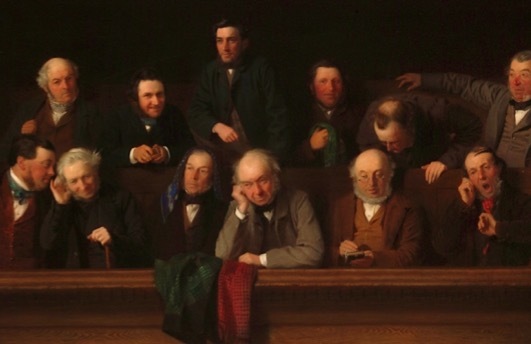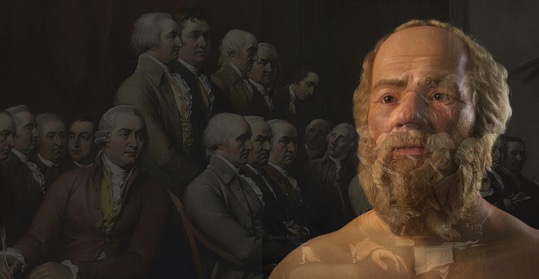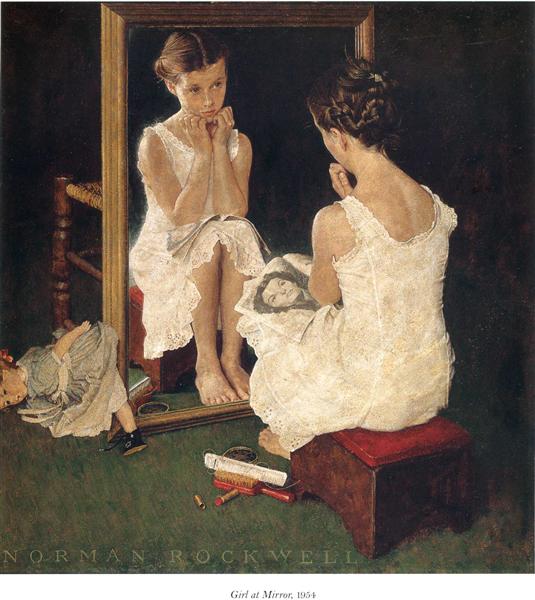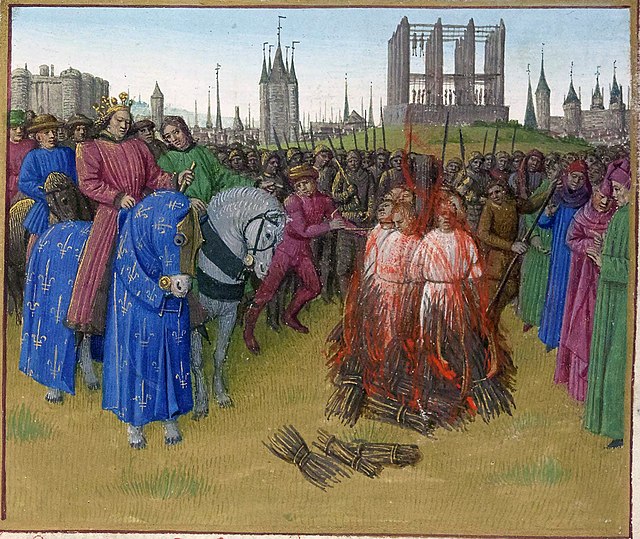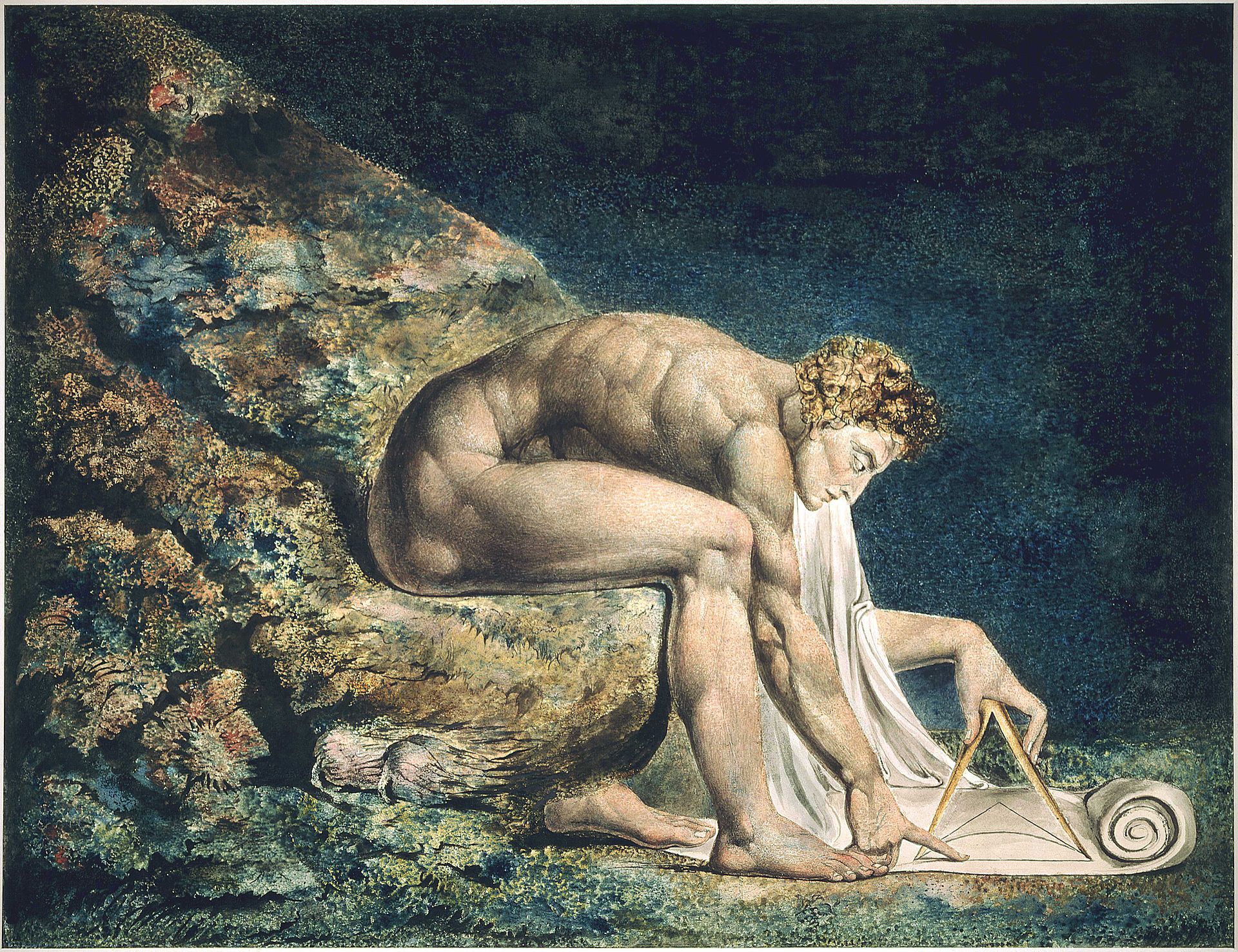A little less conversation, a little more action.
Ancient Friends, Modern Enemies
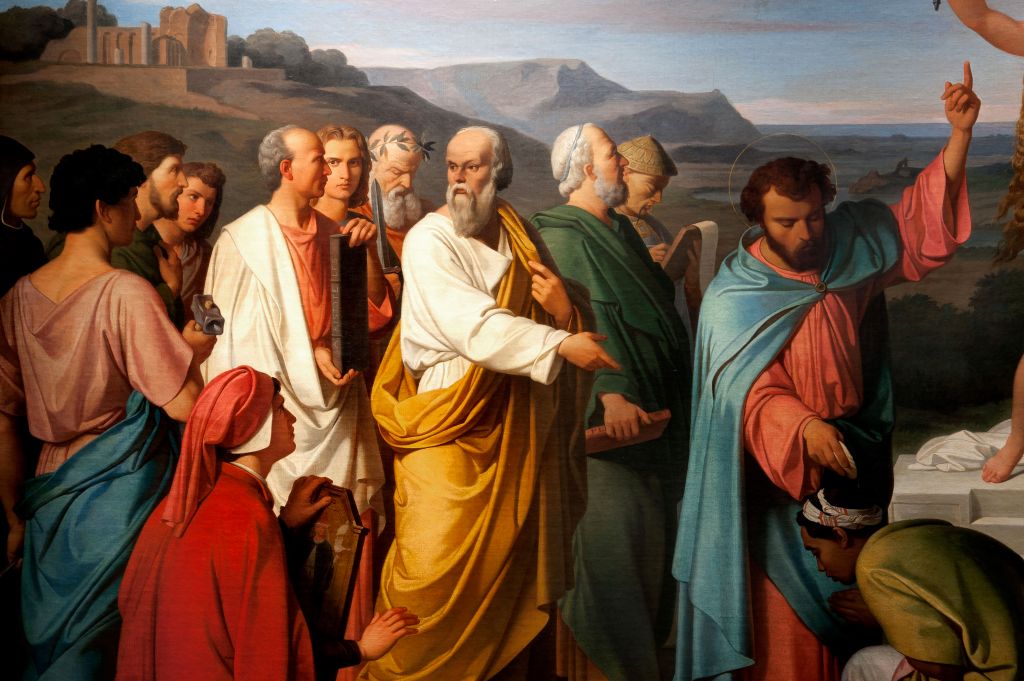
It’s not necessary to rely on Carl Schmitt to preserve the friend-enemy distinction.
Though highly unpopular in today’s politics, the friend-enemy distinction nevertheless remains vital. Since Donald Trump’s surprising victory in the 2016 election, and the nonstop assault on his presidency and person by the ruling oligarchy, realism about who is a friend and what next-door neighbor might in fact be an enemy has clapped conservatives over the head like a thunderbolt. Accordingly, moderates, conservatives, New Right authors, and political Protestants have taken up this debate in recent months.
Much has been written about Carl Schmitt and his elevation of the friend-enemy distinction as the most important act in developing a political self-identity and will to survive. Schmitt, the German philosopher who forcefully articulated this argument in his 1932 book The Concept of the Political, defined the essence of the political as the difference between a friend and an enemy. Independent of the antitheses of other domains such as morality (good and evil), aesthetics (beautiful and ugly), and economics (profitable and unprofitable), Schmitt insisted that the friend-enemy distinction “can neither be based on any one antithesis or any combination of other antitheses, nor can it be traced to these.”
By divorcing the friend-enemy distinction and its practical application from the good, the beautiful, and the advantageous, Schmitt was simultaneously de-escalating national conflicts predicated upon moralistic defenses of absolute enmity, as well as defanging his opponents who relied upon universal moral precepts on behalf of “humanity” to condemn and dehumanize their own enemies. Instead, for Schmitt, the enemy is simply “the other, the stranger” who “intends to negate his opponent’s way of life” and therefore must be resisted in order to preserve one’s life, customs, laws, and civilization.
By presenting the friend-enemy distinction in this light, Schmitt revealed his commitment to a form of conventionalism in which one’s own way of life ought to be defended merely because it is one’s own. In this case, ideals of courage, justice, wisdom, and prudence emerge from within one’s own collective experience and in defense of ancestral customs and traditional ways of life. While these virtues could be used to critique one’s own community, because they were generated by a particular tradition they easily fall prey to historical relativism and shifting evolutionary standards. The risk is that such a community becomes morally blind and aesthetically ugly, all while entrenching its customs and rationalizing its cherished values.
But few seem to realize that we don’t have to rely on Schmitt’s flawed analysis to preserve the friend-enemy distinction—it is as old as Western civilization. Befriending the ancient Greeks can help us understand modern enemies without having to invoke Schmitt.
In Book III of his Nicomachean Ethics, Aristotle begins his investigation of the virtues after a long discussion on the highest end of human life (virtue or happiness) and human action (choice or rational appetite). The first virtue he addresses is courage, one of the four cardinal virtues, but the preeminent virtue because it is indispensable to political existence and to the good life.
Courage enables small republics to resist foreign conquerors, and, if necessary, fearlessly embrace a beautiful and noble death in war. Yet courage also equips citizens of large republics to preserve correct opinion about what is good and evil, and thus about what types of actions are virtuous and noble versus those that are self-interested and disorderly, thus being harmful to the city. In Plato and Aristotle we see these two kinds of courage at work: the courage necessary to establish a city and the courage to maintain and preserve it from external aggression and internal corruption. Without courage, neither mere life (self-preservation against enemies) nor the good life (virtue and happiness understood as freedom from corrupt passions and self-interest) can be attained.
Courage, however, presupposes that one knows the difference between friends and enemies and between good and evil. Since courage works both to protect a political community from external danger and also internal corruption, this means that enemies might be inside the gates just as much as outside them. The external enemy usually seeks to harm or kill you while the enemy within corrupts the city and its youth regarding the laws, morality, and religion, concepts that are also often associated with Schmitt. The public or political enemy—the πολέμιος or hostis—is the collective whole of the “other” that is seeking to negate your way of life. The private enemy—the ἐχθρός or inimicus—is the wayward neighbor or citizen who is to be “loved” and corrected as you would a family member.
The distinction in kind and proximity between the public and private enemy was not new to Schmitt, who was possibly drawing from Plato. In discussing how the guardians will conduct war in Book V of the Republic, Socrates counsels Glaucon that Greek soldiers should treat fellow Greek enemies differently than barbarian enemies. In particular, Greeks should “where possible not turn on one another” but accustom themselves to this: “that the race [γένους] of the Greeks be spared” while barbarians are enslaved. This requires a distinction between war and faction: war (πολέμος) is what soldiers do to barbarians, to those who are “strange and foreign.” Faction is conflict or hatred (ἐχθρός) among “one’s household and kin [τὸ οἰκεῖον καὶ συγγενές].” This distinction, Socrates insists, is “by nature” [φύσει]: non-Greek barbarians are, by nature, at war with Greeks while fellow Greeks are all by nature friends even if they are sick with the disease of faction and internal strife. These sickly friends must not be punished or enslaved but corrected and chastened for the purpose of reconciliation and civil harmony.
While Plato explicitly locates the distinction between public and private enemy in natural relations, Schmitt is more covert. This is understandable, for modern political discourse is obsessed with the “evils” of an ethnically-based political community and the pursuit of ethnic purity that marks the friend-enemy line solely on the basis of inborn traits, accidents of birth, and kin relations.
What is important, however, is to recognize that for the Greeks, the best regime always began with an ethnically homogenous people who shared a common language, religion, land, civil laws, and way of life. Every virtuous political community, however, must transcend this foundation while not working to undermine it. For the Greeks, virtue was not a stale list of rights and wrongs but instead meant human excellence, nobility, and beauty—characteristics that could be true of any person regardless of birth, geography, or custom. A virtuous city, then, was not ultimately determined by purity of stock but by virtuous, free, and equal citizens who were capable of ruling and being ruled in turn.
To be a virtuous and free citizen capable of political rule requires other virtues besides courage. The virtue of justice is arguably more important for the friend-enemy distinction, as we can see by turning to Plato’s discussion of justice in the first book of the Republic.
After interrogating the elderly Cephalus who indifferently opines that justice is speaking the truth and giving back what one takes (before he hurries off for the ancestral sacrifices), Socrates turns to Polemarchus, who defines justice as giving to each what he is owed (following the poet, Simonides of Ceos). When pressed on who is owed what, Polemarchus falls back on the well-established custom that justice is benefiting one’s friends and harming one’s enemies. This could be read in a purely conventional way: one’s enemies are simply those who oppose your way of life or who seek your harm. In fact, this is what Socrates objects to in Polemarchus’s thought, for he argues that for it to be just to harm one’s enemy, you must first prove that your enemy is actually deserving of condemnation and harm. Neither the vulgar opinion of the city nor the mere presence of an existential threat are sufficient to define the real enemy. Whoever is opposed to the just is the actual enemy, which places an imperative upon the city to ameliorate its ancestral ways to righteousness and justice so that, in its fight against its enemies, it is not found to be more evil and corrupt than those it opposes.
In flipping the script on Polemarchus, Socrates does not deny that justice is important in identifying friend from enemy. Instead, he argues it is first necessary to know the just before you can be confident of who is your enemy. Elsewhere, Socrates provides an answer to this question in his query to Euthyphro about the origins of anger and enmity: “what would we differ about and what decision would we be unable to reach, that we would be enemies and angry at each other?” Without waiting for a reply, Socrates answers, “It is these things: the just and the unjust, and noble and shameful, and good and bad. Isn’t it because we differ about these things and can’t come to a sufficient decision about them that we become enemies to each other, whenever we do, both I and you and all other human beings?”
Different opinions about the just, the good, and the noble are what ultimately determines friends and enemies. Eventually, even internal enemies of a faction who refuse to be corrected regarding true opinions of justice and the good will become external enemies, exiled from the city and at war with her citizens.
Socrates claims in the Republic that the just man is unable to harm anyone (either friend or enemy), which seems to be self-defeating: the wise man knows what justice and injustice are, and he thereby truly knows who his friends and enemies are, though he is powerless to defend his friends or defeat his enemies. In Socrates’ case, the way to square what he says in the Euthyphro with the just man and his enemies in the Republic is to realize that it would be left up to the “good and beautiful” statesman—the political man according to the Spartan ideal of the gentleman and warrior—to kill the enemies of the just man. This requires moderation in the city as much as moderation in the soul: the proper harmony and balance of the different parts of the soul and the different elements of the city according to their natural virtues.
The man who has complete virtue and wisdom, the philosopher, would be able to see clearly in his mind’s eye what the good, just, beautiful, and noble are and would instruct the statesman in these matters toward understanding and knowledge. This would equip the statesman, who has been entrusted with the care of the political community, to do what is necessary to defend citizens (including the wise men of the city) against their enemies—against injustice, evil, and ignobility of all kinds. While according to Aristotle in the Politics the statesman is necessary for founding a city and protecting mere life against one’s external and material enemies, the wise man is indispensable for cultivating the good life and correct opinion of justice within the city, thus preserving the city in the long run. Only once the city is truly happy, complete, and self-sufficient thanks to the wise men can the statesman be confident that his current or future acts against internal or external enemies are, in fact, just, and that those identified as enemies are, in fact, enemies.
You might ask, but how do we know what justice or courage is? Who gets to define wisdom or moderation? Merely appealing to moral, virtuous, and noble concepts to distinguish friend from enemy only begs the question as to what these concepts mean—and who gets to say. An answer to such questions is beyond the scope of this article, but it should begin with that ancient question, quid sit Deus? Thus the friend-enemy distinction must, in the end, appeal to a divine standard of God’s just dealings with men. The true friend is a friend of God, while enemies are those who hate Him.
When we turn to the ancient Greeks, we find friends and enemies everywhere taken for granted, if not explicitly named and debated. This was as much a necessary function of geography and the warring nature of small city-states in constant strife as it was due to idealistic musings. The best of the classical writers, however, sought to elevate the naked reality of friends and enemies beyond the materially existential to a higher plane of contemplation. They ultimately distinguished friend and enemy according to a philosophic (and religious) understanding of courage, justice, moderation, and wisdom—the cardinal virtues.
If we follow the Greeks we must abandon Schmitt, who eschews all moral, aesthetic, economic, and judicial criteria for defining friend and enemy—and thus defining the political. Schmitt’s conventionalism reduces politics to vulgar, mere life. He pacifies and stupefies the New Right, which instead needs moral wisdom, righteous energy, and the relentless pursuit of beauty.
A reorientation to the ancient view of the friend-enemy distinction will accomplish three things:
First and foremost, it will help us know who is truly a friend and who is truly an enemy today. Do they love or hate justice? Are they courageous or cowardly? Do they seek wisdom and moderation in their thoughts or actions, or do they recklessly pursue pleasure and self-absorbing activities?
Second, it will alert us to the fact that the enemies of America are just as likely to be within the country as without it—such as our political class or even fellow citizens. America cannot continue with divided loyalties among her citizens: divided in what they consider good and evil and in whom they will harm or benefit.
Third, an ancient perspective will resist the morally blind and vacuous conventionalism that easily justifies itself by sheer power and violence, which is too often content with a vulgar politics of mere life. By becoming friends with the ancients we rediscover that the political is not ultimately about friends and enemies but about higher and nobler things—things that cannot be achieved apart from concord among friends who have first defeated their enemies, but things that nonetheless approach happiness and a life well lived.
The New Right can no longer afford to ignore the friend-enemy discourse. In a post-Trump(?), post-COVID world, the curtain has been ripped away from the rhetoric of “Hope and Change” and “Our Democracy,” revealing an ugly, corrupt, and rotten political elite. This is no longer politics as normal. What once passed for legitimate opposition among competing political parties has long since been replaced by permanent, one-party rule by a class of godless, global apparatchiks, eager and willing to sell the American people, along with their land and heritage, for 30 pieces of silver. Enemies are among us, pressing against us from all sides. Yet we still have many friends who clearly see what is happening and who are ready to act; and while we have friends, we have reason to hope.
The American Mind presents a range of perspectives. Views are writers’ own and do not necessarily represent those of The Claremont Institute.
The American Mind is a publication of the Claremont Institute, a non-profit 501(c)(3) organization, dedicated to restoring the principles of the American Founding to their rightful, preeminent authority in our national life. Interested in supporting our work? Gifts to the Claremont Institute are tax-deductible.
Libertarianism again fails natural right.
How American Parents Turn Their Daughters Out.
No future awaits those who rage against family, work, and community.
We’re the ones to decide on whom we should rely.
The Right has yet to Re-Form the Culture.

